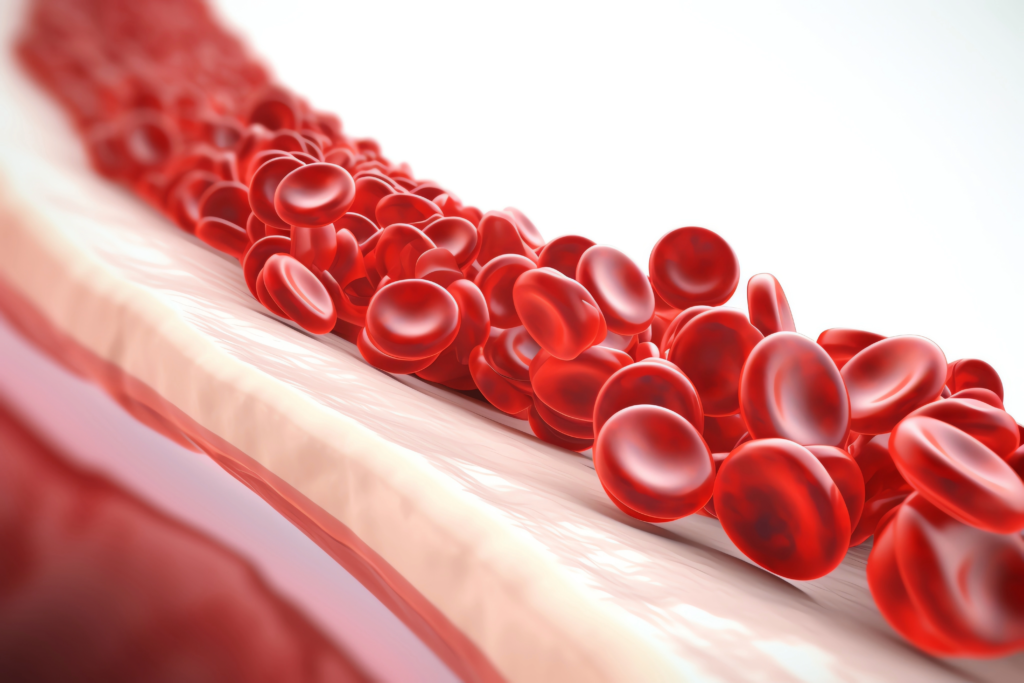Combating Brain Fog: How Holistic Approaches and Better Sleep Can Restore Clarity

In today’s fast-paced world, many individuals experience mental cloudiness or difficulty concentrating, commonly known as brain fog. This sensation can range from mild to severe and significantly impact daily life. Brain fog can arise from various causes such as stress, lack of sleep, poor nutrition, or underlying health conditions. Fortunately, holistic services can offer natural and effective ways to address this issue, restore mental clarity, and improve overall well-being. One of the key aspects of managing brain fog is improving sleep quality, which is essential for optimal cognitive function.
What Is Brain Fog?
Brain fog refers to a collection of cognitive symptoms such as forgetfulness, lack of focus, difficulty concentrating, mental fatigue, and a general sense of confusion or feeling “cloudy.” While brain fog is not a medical condition in itself, it is often a symptom of other underlying issues. Stress, anxiety, nutritional deficiencies, sleep deprivation, and hormonal imbalances are just some of the factors that can contribute to brain fog. In some cases, it may also be linked to chronic conditions such as fibromyalgia, autoimmune diseases, and depression.
Experiencing brain fog can be frustrating, especially when it interferes with work, relationships, and personal goals. Since the causes of brain fog are often multifactorial, addressing it requires a holistic approach—one that considers the body, mind, and spirit.
Common Causes of Brain Fog
- Stress and Anxiety: Chronic stress increases the levels of cortisol, the body’s primary stress hormone. Prolonged high levels of cortisol can impair cognitive function, leading to difficulties with memory, focus, and mental clarity. Anxiety can also add to brain fog by creating mental and emotional tension, which makes it harder to think clearly.
- Poor Diet and Nutritional Deficiencies: Certain nutrients, such as B vitamins, omega-3 fatty acids, and magnesium, are critical for brain health. A diet lacking these essential nutrients can negatively affect cognitive function. Additionally, dehydration can contribute to feelings of fatigue and mental cloudiness.
- Sleep Deprivation: One of the most significant contributors to brain fog is inadequate or poor-quality sleep. Sleep is essential for cognitive processing, memory consolidation, and mental restoration. Without sufficient sleep, the brain becomes sluggish, and individuals may struggle to focus, process information, or recall memories effectively.
- Hormonal Imbalances: Hormonal changes, such as those experienced during menopause or from thyroid disorders, can impact cognitive function. Imbalances in thyroid hormones, estrogen, and progesterone can contribute to brain fog, making it difficult to concentrate or think clearly.
- Chronic Illnesses or Medications: Chronic health conditions such as fibromyalgia, chronic fatigue syndrome, and autoimmune diseases, as well as certain medications used to treat these conditions, can cause cognitive dysfunction and contribute to brain fog.
Holistic Approaches to Addressing Brain Fog
Holistic services focus on treating the whole person by addressing the root causes of conditions like brain fog. By considering all aspects of an individual’s health—body, mind, and spirit—holistic approaches can help restore mental clarity, reduce stress, and improve overall well-being.
1. Deep Muscle Therapy (DMT) and Stress Relief
Stress is one of the leading causes of brain fog, and one of the most effective ways to combat it is through physical relaxation techniques. Deep Muscle Therapy (DMT) focuses on releasing tension in the muscles, particularly those areas that hold stress such as the neck, shoulders, and back. By targeting areas of physical tension, DMT helps reduce overall stress levels, improve circulation, and promote relaxation. Reducing muscle tension and physical discomfort can indirectly alleviate cognitive symptoms of brain fog. When the body feels at ease, the mind can focus more effectively, leading to improved mental clarity and function.
2. Hot Stone Therapy for Relaxation
Hot stone therapy is another holistic treatment that can help reduce brain fog caused by stress and anxiety. The warmth of the stones relaxes tight muscles, promotes blood flow, and provides an overall sense of calm. This therapy helps reduce physical tension, making it easier for the mind to relax and focus. It’s particularly effective for those who experience brain fog as a result of emotional or mental stress. By using heat to balance the nervous system, hot stone therapy can improve cognitive function by creating a more relaxed and focused state of mind.
3. Mindfulness Meditation and Mental Clarity
Mindfulness meditation is a practice that encourages individuals to focus on the present moment, helping them to become more aware of their thoughts and emotions without judgment. Regular mindfulness practice has been shown to reduce stress, anxiety, and mental fatigue—all of which contribute to brain fog. By cultivating mindfulness, individuals can reduce the mental clutter that clouds their thoughts and improves focus and concentration. Engaging in regular meditation allows the mind to reset, promoting greater mental clarity and helping to relieve feelings of fogginess.
4. Holistic Nutrition for Brain Health
Holistic nutrition emphasizes the role of a balanced diet in supporting overall health, including cognitive function. Certain foods are especially beneficial for brain health and can help reduce brain fog. Nutrients like omega-3 fatty acids, found in fatty fish, flaxseeds, and walnuts, are essential for maintaining brain structure and function. Additionally, B vitamins—particularly B6, B12, and folate—help regulate neurotransmitter activity and can reduce mental fatigue. Magnesium, found in leafy greens, nuts, and seeds, has a calming effect on the nervous system and can help reduce stress, which in turn reduces brain fog.
Hydration is also crucial for cognitive function. Dehydration can impair memory, concentration, and mental clarity, so it’s important to drink plenty of water throughout the day. If you’re experiencing persistent brain fog, a holistic nutritionist can help create a diet plan that supports your mental well-being and addresses potential nutritional deficiencies.
The Crucial Role of Sleep in Reducing Brain Fog
One of the most effective ways to combat brain fog is improving the quality of your sleep. Sleep plays a crucial role in mental health, as it allows the brain to process information, consolidate memories, and repair itself. Without sufficient sleep, cognitive functions like memory, focus, and decision-making are impaired, leading to the symptoms of brain fog.
Holistic approaches to improving sleep include relaxation techniques, such as deep breathing exercises or progressive muscle relaxation, which help prepare the body for restful sleep. Aromatherapy with essential oils like lavender or chamomile can promote relaxation and create a sleep-friendly environment. Additionally, establishing a consistent bedtime routine and limiting screen time before bed can signal to your body that it’s time to wind down and rest.
If sleep problems persist, it may be helpful to consult with a healthcare provider to rule out sleep disorders such as insomnia or sleep apnea.
Brain fog is a multifaceted issue that can stem from various causes, including stress, poor nutrition, lack of sleep, and hormonal imbalances. Fortunately, holistic services provide effective and natural solutions for managing brain fog. By utilizing therapies such as Deep Muscle Therapy, hot stone therapy, mindfulness meditation, and improving nutrition, individuals can address the root causes of brain fog and restore mental clarity. Additionally, improving sleep quality is essential for reducing cognitive fatigue and enhancing overall brain function. If you’re struggling with brain fog, consider exploring holistic therapies to support your mind and body on the path to improved mental clarity and health. Always consult with your healthcare provider before making significant changes to your diet or wellness routine.




